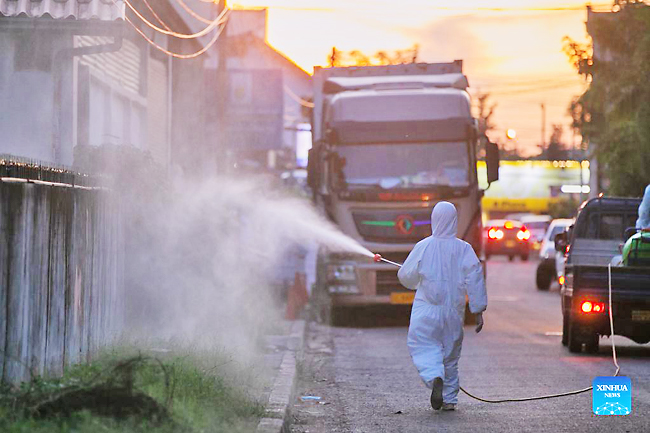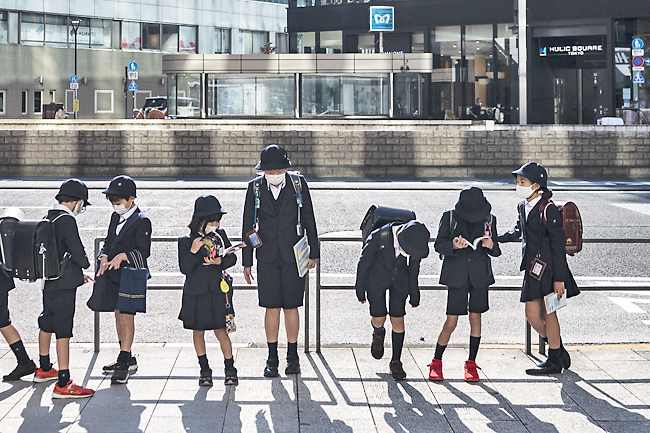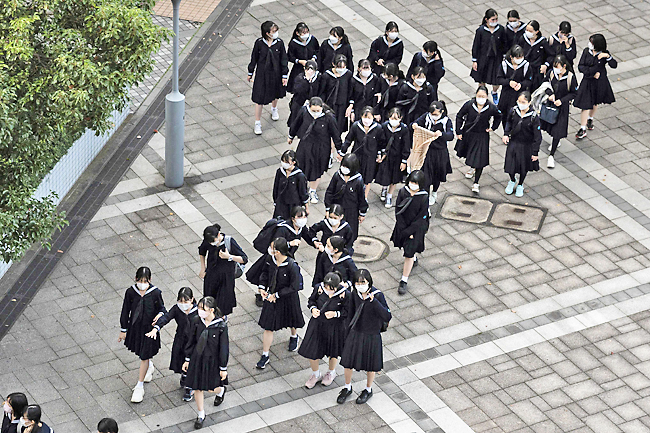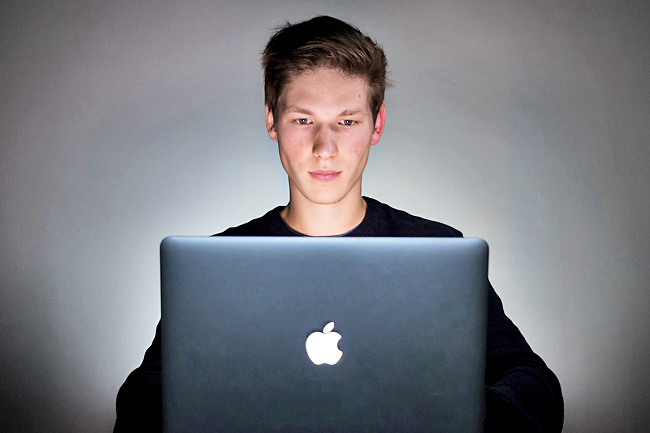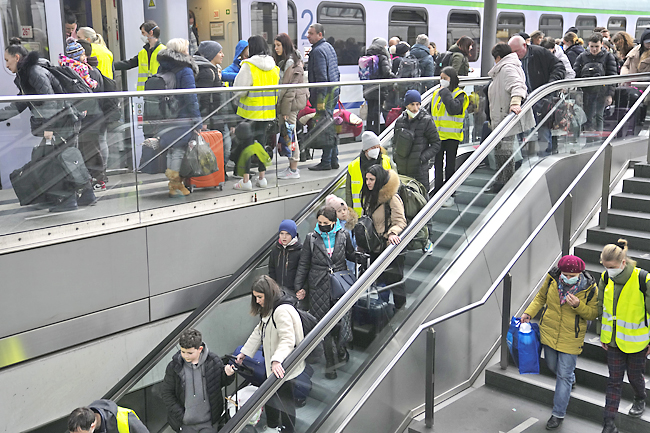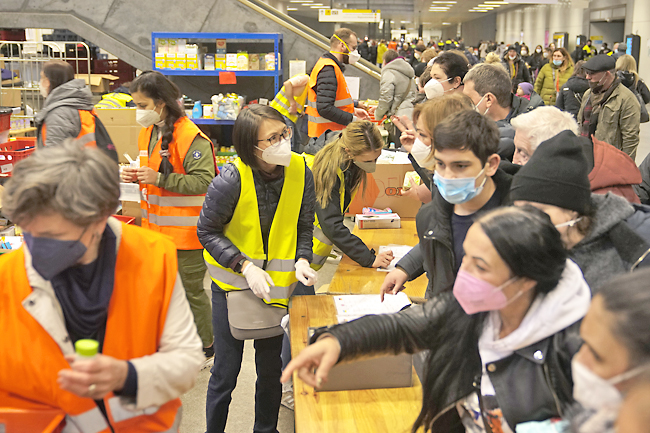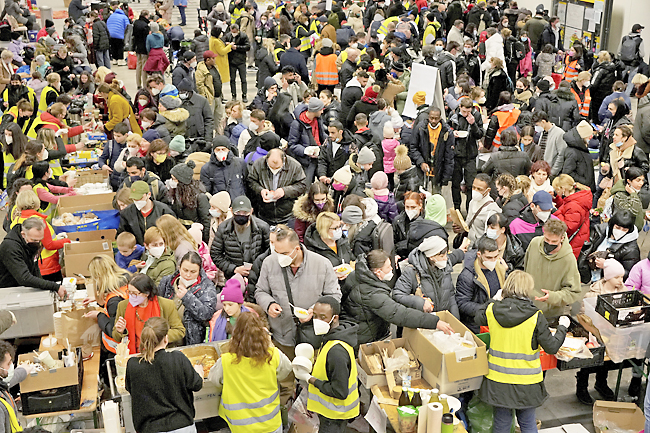Danielle Braff
CNA/THE NEW YORK TIMES – About a year into the pandemic, Marcela Rafea began waking up consistently at 3am, her mind racing.
She would creep out of bed and tiptoe into the living room, where she would meditate, try a few yoga poses and open the window to hear the leaves rustle, the cars rush by and the dogs bark.
Then, at 6am, she crawled back into bed and would sleep again until her youngest child woke her for the day at 7am.
“I needed that night wakefulness to make up for the time that I didn’t have for myself,” said Rafea, a 50-year-old photographer and mother of three who lives in Oak Park, Illinois.
Unbeknown to Rafea, she had naturally reverted back to a sleep cycle that was believed to be standard in multiple cultures in the late Middle Ages through the early 19th Century.
During that time, many people went to sleep around sundown and woke three to four hours later. They socialised, read books, had small meals and tried to conceive children before going back for a second sleep for another three to four hours.


It was only when artificial light was introduced that people began forcing themselves to sleep through the night, said professor of history at Virginia Tech and the author of The Great Sleep Transformation A Roger Ekirch.
Now that many people are making their own schedules, working from home and focussing more on self-care, there has been a return for some to the idea of a segmented sleep cycle – voluntary and, given the stress levels of the past two years, not.
So are we simply reverting to our long forgotten, natural sleep cycle? And could this be the cure for those deemed middle-of-the-night insomniacs?
WHAT IS SEGMENTED SLEEP?
Ekirch, who has studied segmented sleep for the past 35 years, said there are more than 2,000 references to it from literary sources: everything from letters to diaries to court records to newspapers, plays, novels and poetry, from Homer to Chaucer to Dickens.
“The phenomenon went by different names in different places: first and second sleep, first nap and dead sleep, evening sleep and morning sleep,” said professor of English at Emory University and the author of Wild Nights: How Taming Sleep Created Our Restless World Benjamin Reiss.
He added that rather than being a choice at the time, this was simply something that people did, as it fit agricultural and artisanal patterns of labour.
Back then, in addition to being a useful time for conceiving, the wakeful period was also believed to be a prime time for taking potions and pills and for aiding digestion (one would sleep on one side of the body during the first sleep, and then on the other side during the second sleep), Ekirch said.
There was no pressure to get to the factory floor on time, to catch a train or to send children off to school, as most work was done in or near the home, Reiss said. Sleep wasn’t governed by the clock, but by the rhythms of night and day as well as by changes in the season.
THE DOWNSIDE OF SEGMENTED SLEEP
There were negative reasons for segmented sleep as well.
“Sleeping surfaces – often a sack stuffed with grass, or if you were lucky, wool or horsehair – made it harder than it is today to sleep for a long stretch without interruption,” Reiss said.
And there were, of course, health issues. For example, “without modern dentistry, a toothache might start throbbing in the middle of the night”.
Everything changed with the Industrial Revolution, emphasising profit and productivity; the belief was that people who confined their sleep to a single interval gained an advantage. The growing prevalence of artificial lights permitted later bedtimes, leading to sleep compression.
Fast forward a few hundred years, and we’ve grown accustomed to compressed sleep. Well, some of us have.
Thirty per cent of people report waking up at least three nights per week, according to one study published in 2010 in the Journal of Psychosomatic Research, and 25 per cent of adults suffer from insomnia each year, according to a recent study by researchers at the University of Pennsylvania.
For some people, the pandemic has spurred more flexible schedules, which has led to experiments with the old-fashioned sleep method.
AN EFFECT OF THE PANDEMIC
That’s the case for Mark Hadley, a 52-year-old finance manager in North Bend, Oregon. In the past 20 years, Hadley said he doesn’t remember a time when he slept completely through the night.
“I always woke up halfway through the night and just lay there,” he said. “Physically, I wanted to get up, but I needed more sleep.”
Hadley didn’t have a choice. He had heard of segmented sleep, but didn’t have time to stretch his own… until his job went mainly remote during the pandemic.
So in August 2021, Hadley started segmented sleeping, going to bed at 10pm and waking up naturally at 2am. He gets up for one and a half to two hours to read and to pray. Then he goes back to bed around 3.30-4am and sleeps until his wife wakes him at 6.30-7am.
“This is what my body was trying to do, even when I had never heard of it,” Hadley said. “I finally got to a place where I have a healthy sleep pattern.”
Doctors are conflicted about how healthy segmented sleep is, however.
“We don’t really know the long-term impacts of segmented sleep because we don’t really have much data on it,” said an associate professor of psychology in clinical neurology at Weill Cornell Medicine and NewYork-Presbyterian Matthew Ebben.
It may make some people feel more fatigued and drowsy throughout the day, said health psychologist and assistant professor of neuroscience at Mount Sinai School of Medicine Nicole Avena. Also, Avena said, segmented sleep requires individuals to go to bed earlier, which may not work with many schedules.
That’s why Kristopher Weaver, a 43-year-old songwriter in East Stroudsburg, Pennsylvania, said he manages to stick to a segmented sleep schedule only a few nights a week.
The days he does have time to sleep between 7-11pm and then again between 3-7am, he wakes up refreshed. During his break between first and second sleeps, when his mind is quiet and recharged, Weaver has more energy to write his songs.
The nights that he forces himself to sleep in one go? He needs caffeine and marijuana to get through the next day.
A CURE FOR INSOMNIA
For Danielle Hughes, 33, segmented sleep was a remedy to her insomnia. Hughes, who lives in Dublin, Ireland, spent an entire year visiting with doctors to try to find a solution for her middle-of-the-night awakenings. She finally Googled her issue and stumbled upon segmented sleep.
“It was like a light bulb moment for me,” Hughes said. “The whole anxiety I had about not being able to sleep started to ease, and I started to feel like what little sleep I was getting at night was okay as long as I used my wake time more productively.”
Since she found out about segmented sleep, Hughes has been more open to this concept, sleeping from 2-6am and again from 2-6pm.
In cases of anxiety around insomnia like Hughes’, segmented sleep is often an ideal solution, said sleep science coach and founder of SleepingOcean Alex Savy.
“When practising segmented sleep, insomniacs don’t have to worry about waking up in the middle of the night, as that’s the way segmented sleep works,” Savy said.



